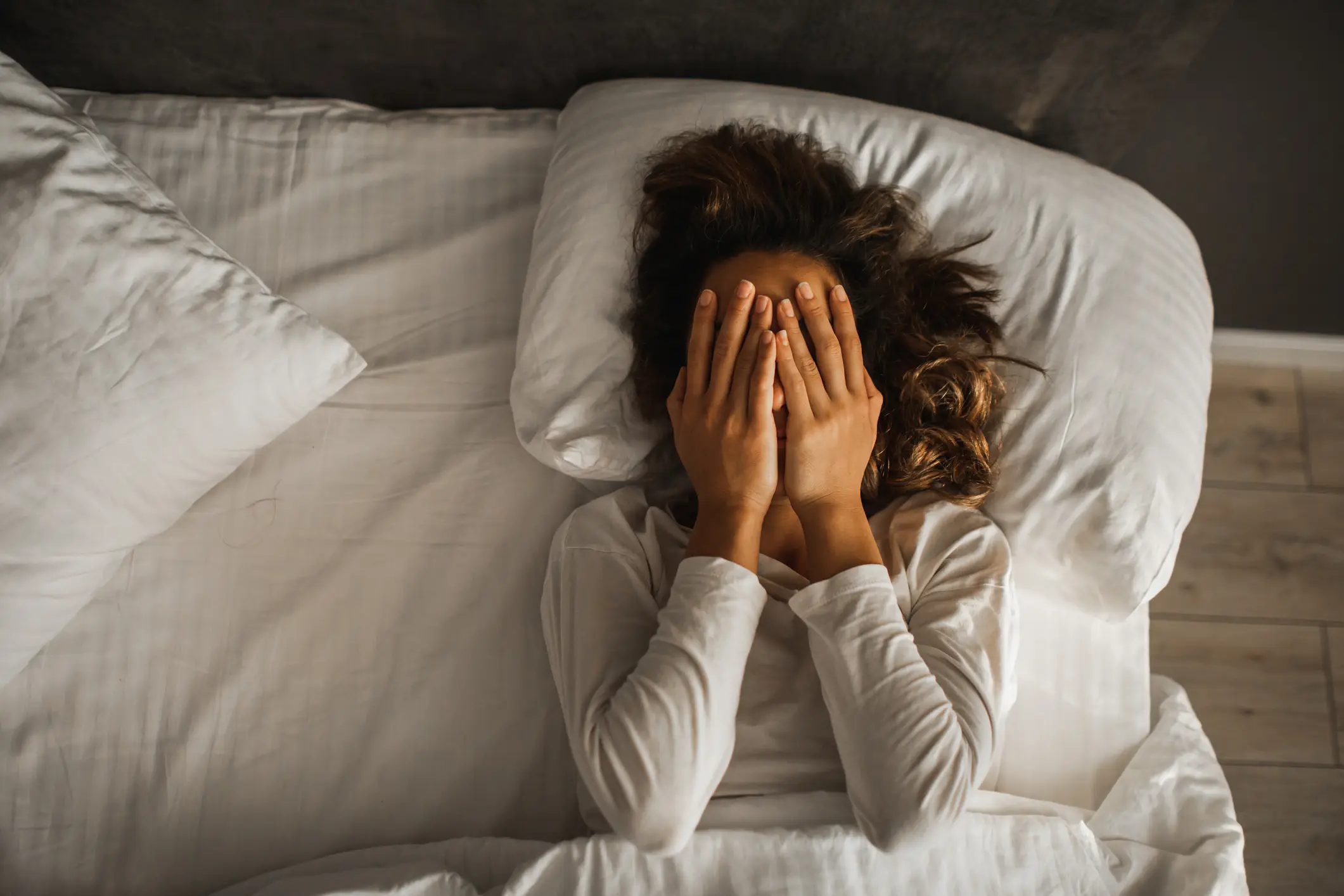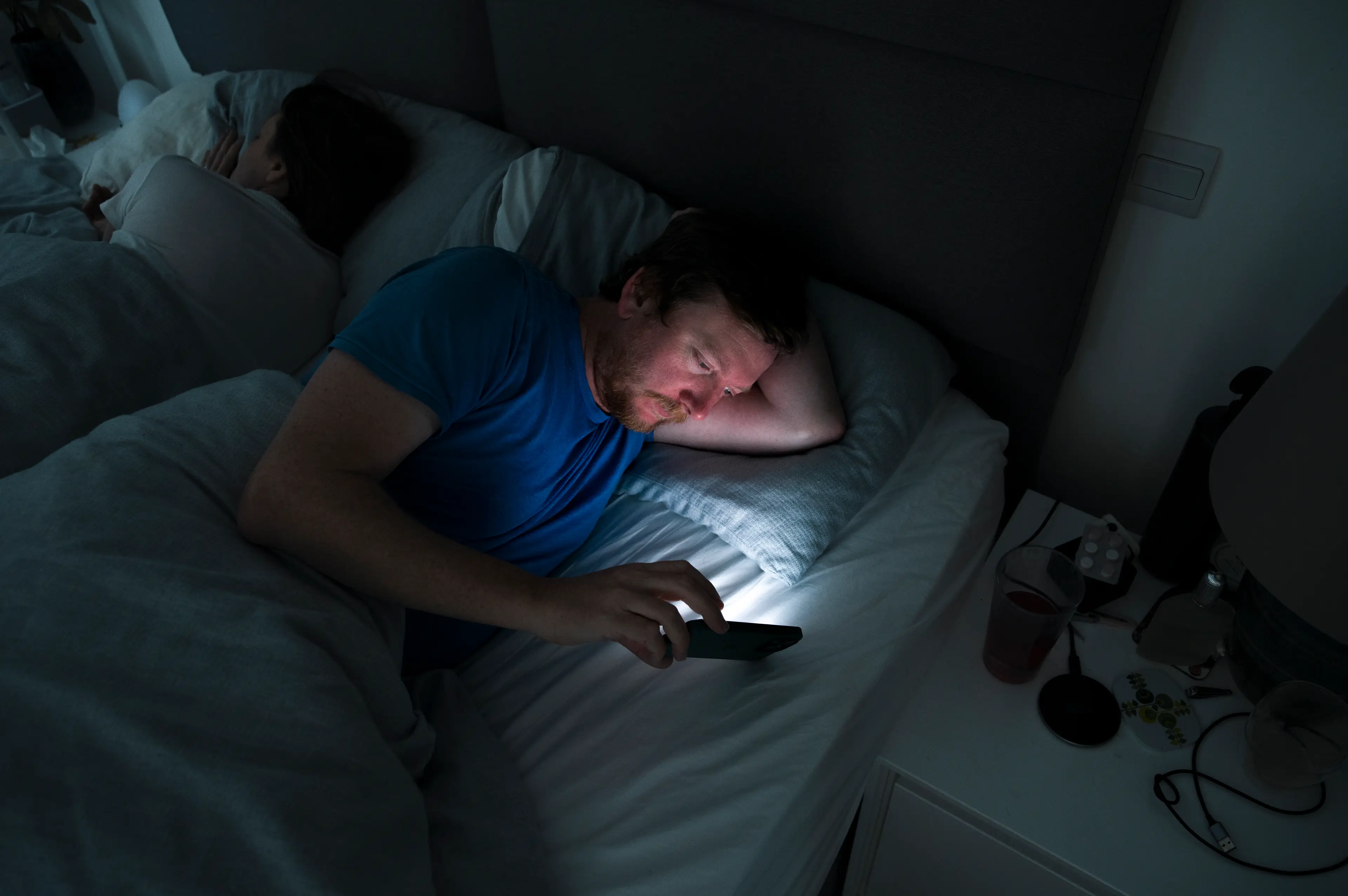
A doctor has warned that waking up at 3am every night may ‘not be normal’, and you may need to seek medical attention.
Getting up from a bad night’s sleep in the morning can be enough to ruin your whole day. I mean, no one wants to be sitting through endless meetings at work after barely getting a good kip the night before.
And for many, a rough night of sleep might mean you’re always finding yourself randomly awake, checking your phone to see it’s still just the early hours of the morning.
However, in particular, if it occurs between about 2 and 3 o’clock, this doctor warns that it may indicate underlying health issues.
Advert
Dr Eric Berg DC raised the concerns on YouTube with a video titled: “This was DESTROYING my life.”
Yeah, I know, a very YouTubey title, but the wellness guru made some rather interesting points.

Specialising in Healthy Ketosis and Intermittent Fasting, he earned his Doctor of Chiropractic degree and is an educator known for his work in nutritional science, natural health, and weight management.
Now retired from clinical practice and focusing on sharing his insights online, he addressed insomnia in the video as being ‘torture’ while explaining reasons people may be struggling and offering up holistic tips.
READ MORE:
DOCTORS WARN AGAINST SLEEPING WITH MOUTH TAPED CLOSE
DOCTOR EXPLAINS WHY WE 'TWITCH' AS WE FALL ASLEEP
Dr Berg claims that cortisol should be at its lowest point at 2am, but for some, it’s apparently at its highest.
“This can cause night waking and other sleep problems that can really interfere with your day,” he explains.

The guru says that sleep medication may be worsening the issue and that magnesium glycinate before bed can instead help to lower cortisol and help you to sleep better.
“How do you go back to sleep if for some reason you wake up between 2-3am in the middle of the night?” he says.
“I would consider myself an expert in insomnia because I had this for over a decade and it was destroying my life. It was not just getting up at 2-3am in the morning, sometimes I wouldn't even sleep for one minute the entire night, I would lay there.
"It was basically torture."
Often called the ‘stress hormone’, cortisol wakes us up in the morning – essentially, our ‘body clock’. But when you are stressed or anxious, your body produces more of it and so therefore can disrupt your sleep.
Trusts in the NHS recommend creating a ‘relaxing bedtime routine’ and having one to one-and-a-half hours to wind down before going to sleep to reduce any stress.
As Dr Berg mentions, low magnesium can make handling stress harder and can lead to increased cortisol levels, potentially causing symptoms such as anxiety and irritability.
Symptoms such as nausea, weakness, twitching, cramping or irregular heartbeat can be signs of abnormal magnesium levels. The NHS also explains that having too much cortisol can cause a rare condition known as Cushing’s syndrome.
You should seek advice from a healthcare professional if you have concerns about your sleep or magnesium and cortisol levels.